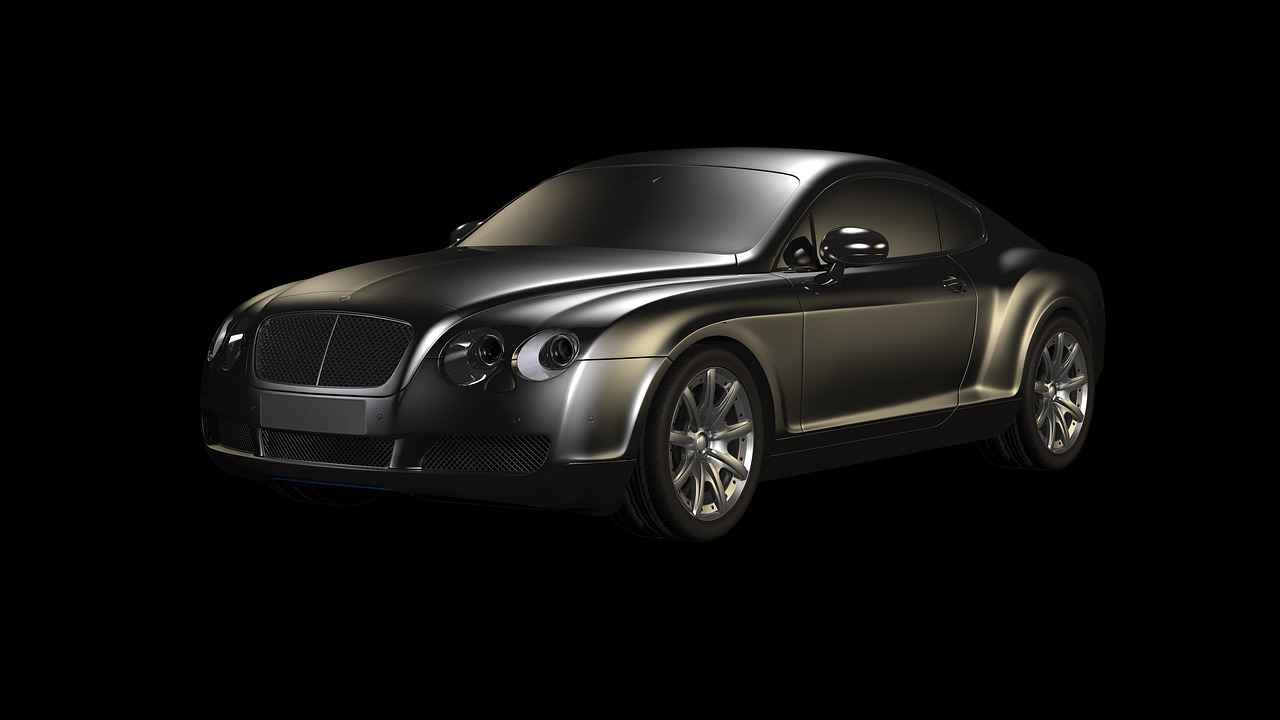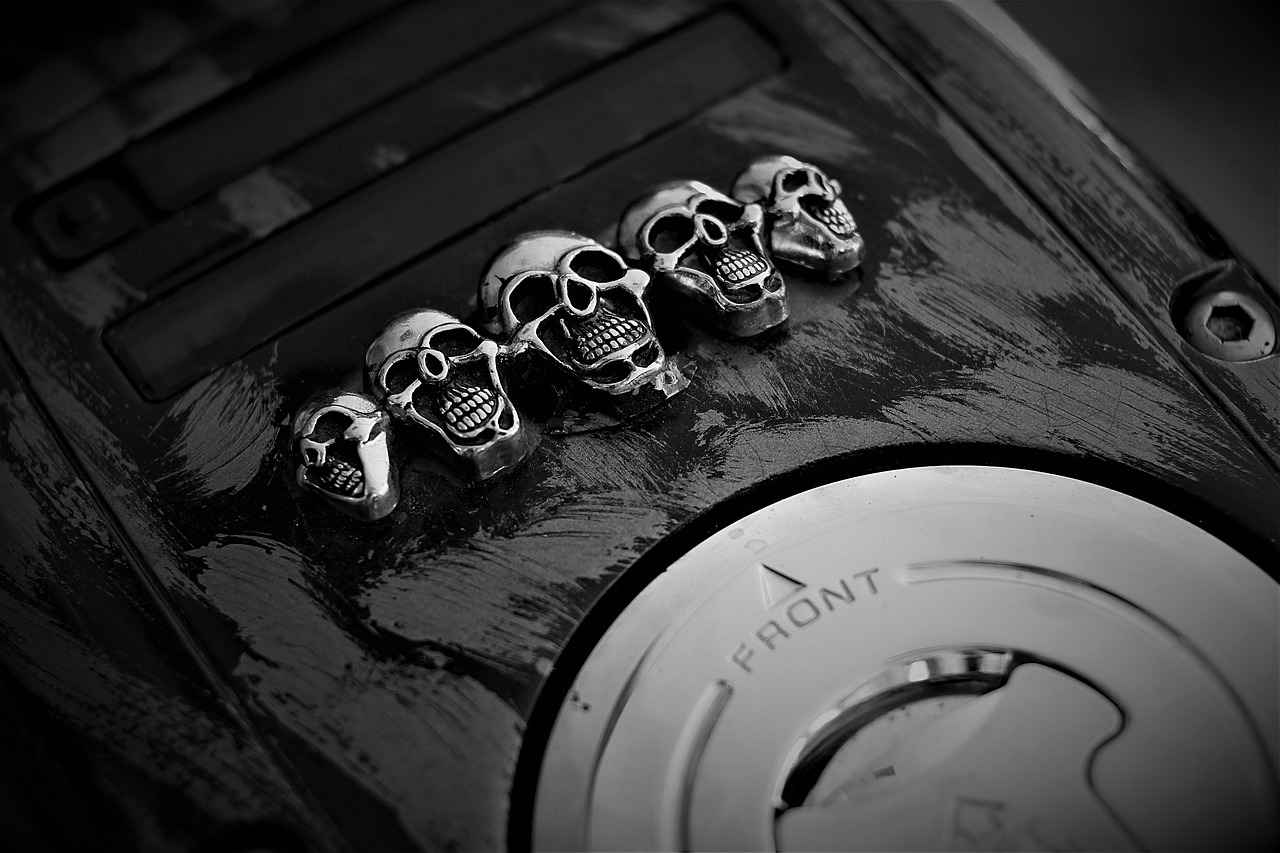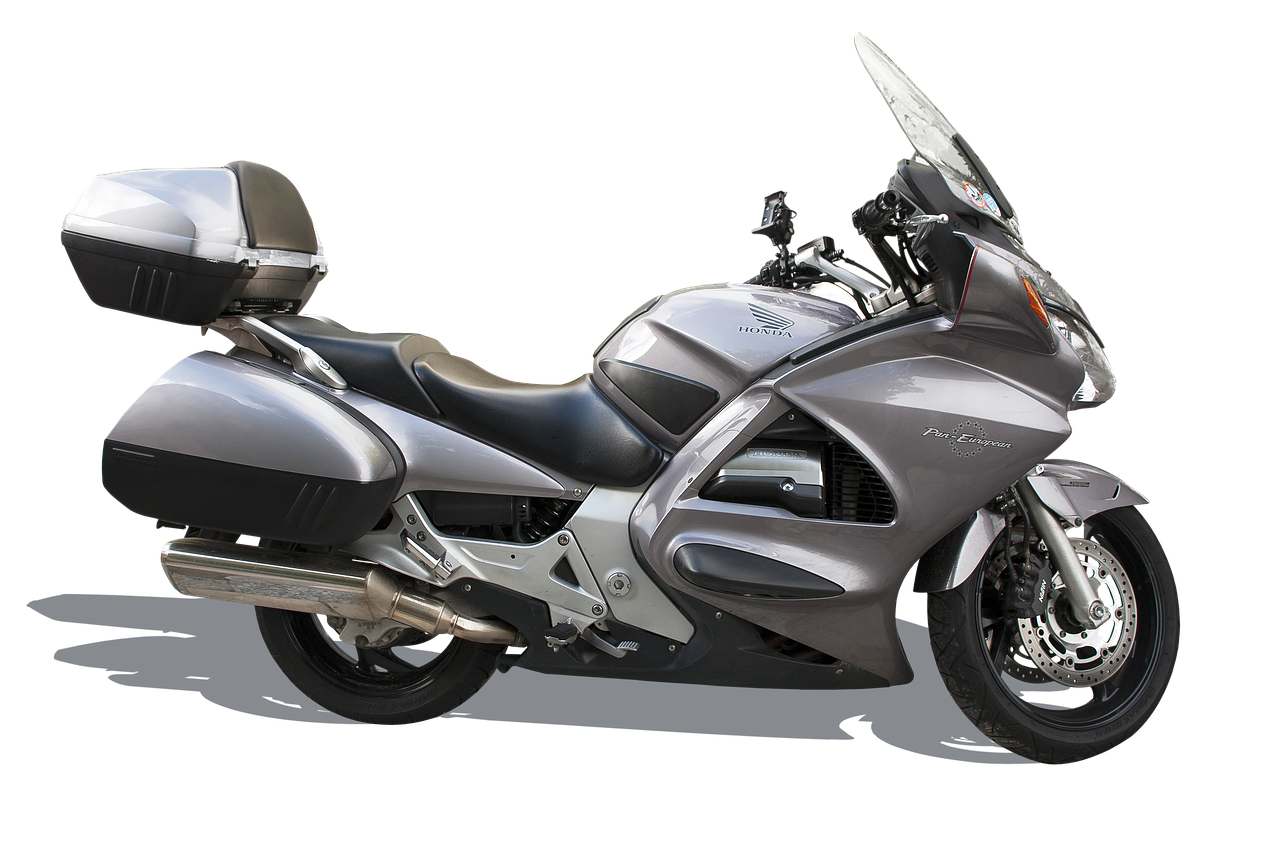This guide provides insights into purchasing a used Honda Civic, covering essential factors such as reliability, pricing, and tips for making an informed decision. The Honda Civic stands out in the compact car market, making it a favored choice for many buyers.
Why Choose a Used Honda Civic?
The Honda Civic is renowned for its durability, fuel efficiency, and resale value. Its reputation for reliability means that many owners experience fewer repairs and lower maintenance costs over time. Additionally, Civics tend to hold their value better than many competitors, making them a smart investment for used car buyers.
Key Features to Look For
- Engine Options and Performance: The Honda Civic offers a variety of engines, from economical four-cylinders to more powerful turbocharged options, catering to different driving preferences.
- Fuel Efficiency Ratings: Civics are well-known for their impressive fuel economy, often achieving over 30 miles per gallon, which can significantly reduce your overall fuel expenses.
- Transmission Types Explained: Whether you prefer the control of a manual transmission or the convenience of an automatic, there are options available to suit your driving style.
Safety Ratings and Features
Safety is a critical factor when selecting a used vehicle. The Honda Civic consistently receives high safety ratings from organizations such as the IIHS and NHTSA, providing peace of mind for you and your passengers.
Understanding Pricing and Market Trends
- Depreciation Rates: Knowing how the Honda Civic depreciates can help you negotiate better prices and assess the value of different models.
- Comparing Prices Across Models: Prices can vary widely based on model year and condition, so it’s essential to research and compare to find the best deal.
Where to Find Used Honda Civics for Sale
- Online Marketplaces: Websites like Autotrader and Craigslist provide extensive listings, making it easier to find a used Civic that meets your needs.
- Certified Pre-Owned Programs: Honda’s Certified Pre-Owned program offers additional benefits, including extended warranties and thorough inspections, ensuring a reliable purchase.
Tips for Inspecting a Used Honda Civic
- What to Check Under the Hood: Inspecting the engine, fluids, and belts can reveal potential issues that may not be immediately apparent.
- Test Driving Essentials: During a test drive, pay attention to the vehicle’s handling, braking, and comfort to ensure it meets your expectations.

Why Choose a Used Honda Civic?
The Honda Civic has established itself as a top contender in the used car market, and there are several reasons why this compact sedan is favored by many buyers. Its reputation for reliability is unmatched; Honda has consistently engineered the Civic to endure the test of time, making it a dependable choice for daily commutes and long drives alike. Many owners report minimal issues even after years of use, which speaks volumes about the vehicle’s build quality.
Another significant advantage of the Honda Civic is its fuel efficiency. With various engine options available, many models boast impressive mileage ratings, allowing drivers to save on fuel costs while reducing their environmental footprint. The combination of performance and economy makes the Civic a smart choice for budget-conscious consumers.
Additionally, the resale value of the Honda Civic is consistently high. This is crucial for buyers who may want to upgrade in the future. Vehicles that hold their value well can significantly offset the cost of purchasing a new car. Many used Honda Civics retain their worth much better than competitors, making them a wise investment.
Furthermore, the Civic’s popularity among used car buyers is bolstered by its safety ratings. Many models come equipped with advanced safety features that provide peace of mind for drivers and passengers. The Civic often earns high marks in crash tests, which is an essential consideration for families and individuals alike.
In summary, the Honda Civic’s blend of reliability, fuel efficiency, and strong resale value make it a standout choice in the used car market. Understanding these benefits can help you appreciate why the Civic remains a preferred option for many buyers seeking a dependable vehicle.

Key Features to Look For
When considering a used Honda Civic, it’s essential to recognize the key features that contribute to its reputation as a top choice among compact cars. These features not only enhance your driving experience but also ensure that you’re getting the best value for your investment. Below are some of the most important aspects to look for when shopping for a used Civic.
- Advanced Safety Features: Modern Honda Civics are equipped with a variety of safety technologies, such as lane-keeping assist, adaptive cruise control, and collision mitigation braking. These features significantly enhance driver and passenger safety.
- Fuel Efficiency: The Honda Civic is well-known for its impressive fuel economy. Look for models that offer hybrid options or the 1.5-liter turbocharged engine, which can provide excellent mileage, helping you save on fuel costs.
- Interior Comfort and Technology: A well-maintained Civic typically features a comfortable interior with high-quality materials. Infotainment systems with smartphone integration, Bluetooth connectivity, and quality sound systems are also significant selling points.
- Performance and Handling: The Civic is praised for its responsive handling and smooth ride. Consider models with sport-tuned suspensions or the Si trim for a more engaging driving experience.
- Resale Value: Honda Civics tend to hold their value well over time. Research the market trends to find models that retain their resale value, ensuring that your investment is protected.
By focusing on these key features, you can make a more informed decision when purchasing a used Honda Civic. Whether you prioritize safety, fuel efficiency, or performance, the Civic offers a well-rounded package that appeals to a wide range of drivers.
Engine Options and Performance
The Honda Civic is a popular compact car known for its balance of performance, efficiency, and reliability. One of the standout features of the Civic is its diverse range of engine options, each designed to cater to different driving preferences and needs. Understanding these options is crucial for potential buyers looking to find the model that best aligns with their driving style.
Honda offers several engine configurations for the Civic, including naturally aspirated and turbocharged variants. The base engine, typically a 2.0-liter four-cylinder, provides a solid blend of power and fuel economy, making it an excellent choice for daily commuting. This engine delivers a commendable balance of performance, ensuring that drivers can navigate city streets and highways with ease.
For those seeking a more spirited driving experience, the turbocharged 1.5-liter engine is a popular choice. This option not only enhances acceleration but also maintains impressive fuel efficiency. With its ability to produce more torque at lower RPMs, the turbo engine offers a responsive feel that appeals to enthusiasts and casual drivers alike.
Moreover, the Civic also features a high-performance variant, the Civic Si. This model is equipped with a more powerful turbo engine and sport-tuned suspension, providing a thrilling driving experience. For performance aficionados, the Civic Type R takes it a step further, boasting a robust engine and advanced handling capabilities, making it a favorite among car enthusiasts.
In summary, the Honda Civic’s diverse engine lineup allows buyers to select a model that fits their specific needs, whether it’s for fuel efficiency, everyday usability, or exhilarating performance. Understanding these options can significantly aid in making an informed decision that enhances your driving experience.
Fuel Efficiency Ratings
The Honda Civic has established itself as a leader in the compact car segment, particularly due to its impressive fuel efficiency. This attribute not only saves drivers money at the pump but also contributes to environmental sustainability. Understanding the mileage ratings across various Honda Civic models is essential for making a wise purchase decision.
When evaluating the fuel efficiency of the Honda Civic, it is important to consider the different engine options available. For instance, models equipped with the 1.5-liter turbocharged engine often achieve higher mileage ratings compared to their naturally aspirated counterparts. Here’s a breakdown of the fuel efficiency ratings for several popular Honda Civic models:
| Model Year | Engine Type | City MPG | Highway MPG |
|---|---|---|---|
| 2022 | 2.0L I4 | 31 | 40 |
| 2021 | 1.5L Turbo I4 | 33 | 42 |
| 2020 | 2.0L I4 | 30 | 38 |
Moreover, the Civic Hybrid variant stands out with even better fuel economy, making it an attractive option for eco-conscious buyers. The hybrid model can achieve an impressive city mileage of around 48 MPG and a highway mileage of approximately 47 MPG, significantly reducing fuel costs over time.
In addition to engine type, driving habits and maintenance can also impact fuel efficiency. Regular maintenance, such as timely oil changes and tire rotations, can help maintain optimal performance. Furthermore, adopting efficient driving practices, like smooth acceleration and braking, can enhance overall fuel economy.
In summary, the fuel efficiency ratings of the Honda Civic are a key factor that contributes to its appeal as a used vehicle. By understanding the mileage ratings across different models, potential buyers can make informed decisions that align with their budget and driving needs.
Transmission Types Explained
The Honda Civic is a versatile compact car that caters to a wide range of driving preferences, thanks in part to its transmission options. Understanding the differences between manual and automatic transmissions can significantly influence your purchasing decision.
Manual Transmission offers a more engaging driving experience for enthusiasts who enjoy having direct control over their vehicle’s performance. With a manual transmission, drivers can shift gears at their discretion, allowing for greater acceleration and engine responsiveness. This option is often preferred by those who appreciate a sportier feel and want to maximize fuel efficiency, as manual vehicles typically consume less fuel compared to their automatic counterparts.
On the other hand, Automatic Transmission provides convenience and ease of use, making it an ideal choice for city driving and heavy traffic. With automatic transmission, drivers do not need to worry about shifting gears manually, allowing them to focus more on the road. This type of transmission has evolved significantly, with many modern automatics featuring advanced technologies such as continuously variable transmissions (CVTs) that enhance fuel efficiency and provide smoother acceleration.
When deciding between these two options, consider your driving habits and preferences. If you frequently navigate through congested areas or prefer a more laid-back driving experience, an automatic transmission may suit you best. Conversely, if you enjoy a more hands-on approach and often drive on open roads, a manual transmission could enhance your enjoyment.
Ultimately, both transmission types have their benefits, and assessing your individual needs will help you make an informed choice. Whether you opt for the engaging experience of a manual or the convenience of an automatic, the Honda Civic is equipped to deliver a satisfying driving experience tailored to your preferences.
Safety Ratings and Features
When it comes to purchasing a used vehicle, safety should always be a top priority. The Honda Civic is widely recognized for its commitment to driver and passenger safety, making it a popular choice among buyers looking for a reliable used car. Understanding the Civic’s safety ratings and features can provide you with the peace of mind necessary for a confident purchase.
The Honda Civic has consistently received high safety ratings from reputable organizations such as the National Highway Traffic Safety Administration (NHTSA) and the Insurance Institute for Highway Safety (IIHS). These ratings reflect the vehicle’s ability to protect occupants in the event of a collision. For instance, many models have earned a five-star overall safety rating from the NHTSA, indicating excellent performance in crash tests.
In addition to impressive ratings, the Honda Civic is equipped with a range of advanced safety features. Many newer models come with Honda Sensing, a suite of technologies designed to enhance safety. This includes:
- Collision Mitigation Braking System: Helps prevent or reduce the severity of a collision.
- Road Departure Mitigation System: Alerts drivers if the vehicle is making an unintentional departure from the road.
- Adaptive Cruise Control: Maintains a set speed while adjusting to the flow of traffic.
- Lane Keeping Assist System: Provides steering assistance to help keep the vehicle centered in its lane.
These features not only enhance safety but also contribute to a more enjoyable driving experience. It’s essential to check the availability of these features when considering a used Honda Civic, as they may vary by model year and trim level.
Furthermore, the Civic’s solid construction and advanced airbag systems provide an additional layer of protection. With a combination of strong safety ratings and innovative features, the Honda Civic stands out as a smart choice for safety-conscious buyers.

Understanding Pricing and Market Trends
When considering the purchase of a used Honda Civic, it’s essential to understand the pricing dynamics that influence the market. The price of used Honda Civics can fluctuate dramatically due to several factors, including the model year, mileage, condition, and location of the vehicle. By gaining insights into these elements, buyers can make informed decisions and secure better deals.
Factors Influencing Pricing
- Model Year: Newer models typically command higher prices due to updated features and technology.
- Condition: A well-maintained vehicle with a clean history report will generally be priced higher than one with visible wear and tear.
- Mileage: Lower mileage often correlates with a higher price, as it can indicate less wear on the vehicle.
- Location: Prices can vary based on regional demand; urban areas may have higher prices due to increased demand.
Current Market Trends
The used car market has seen significant changes recently, influenced by various economic factors. The ongoing demand for reliable and fuel-efficient vehicles like the Honda Civic has kept prices relatively stable despite fluctuations in the broader automotive market. According to recent reports, the average price for a used Honda Civic ranges from $15,000 to $25,000, depending on the aforementioned factors.
Pricing Strategies for Buyers
When navigating the used car market, it’s advisable to conduct thorough research. Websites such as Kelley Blue Book and Edmunds provide valuable pricing information and market analysis. Additionally, consider the following strategies:
- Set a budget and stick to it to avoid overspending.
- Be prepared to negotiate the price based on your research findings.
- Look for seasonal deals or promotions that may affect pricing.
By understanding these pricing elements and market trends, prospective buyers can approach their search for a used Honda Civic with confidence, ensuring they find a vehicle that meets their needs and budget.
Depreciation Rates
Understanding vehicle depreciation is crucial for anyone considering the purchase of a used car, especially a popular model like the Honda Civic. Depreciation refers to the reduction in a vehicle’s value over time, influenced by various factors including age, mileage, and condition. By grasping the typical depreciation rates of Honda Civics, buyers can negotiate better prices and make informed purchasing decisions.
The Honda Civic is known for its reliability and longevity, which contributes to its slower depreciation compared to many other vehicles. On average, a Honda Civic can lose about 15% to 20% of its value in the first year. After that, the depreciation rate typically stabilizes to around 10% to 15% per year for the next few years. This means that after five years, a Civic may retain approximately 50% to 60% of its original value, making it a wise investment for used car buyers.
Several factors can affect the depreciation rate of a Honda Civic:
- Model Year: Newer models often have higher depreciation rates initially but may stabilize as they age.
- Mileage: Higher mileage can accelerate depreciation, while lower mileage often helps maintain value.
- Condition: A well-maintained vehicle with service records will depreciate less than one that shows signs of neglect.
- Market Demand: Popular models like the Civic tend to hold their value better due to consistent demand.
To maximize your investment, consider researching the specific model year you are interested in. Websites like Kelley Blue Book and Edmunds provide valuable insights into the market value and depreciation trends for different Honda Civic models. By understanding these factors, you can approach negotiations with confidence, ensuring that you secure a fair price for your used Honda Civic.
Comparing Prices Across Models
When it comes to purchasing a used Honda Civic, understanding the pricing variations across different models is crucial. Each model year and trim level comes with its own set of features, performance capabilities, and price points. This section will provide you with a detailed analysis to help you compare prices effectively and identify the best deal for your needs.
The Honda Civic has evolved significantly over the years, with each generation introducing enhancements in technology, safety, and efficiency. As a result, prices can vary widely based on factors such as age, mileage, and condition. For instance, a 2016 Honda Civic may be priced higher than a 2012 model, reflecting its newer features and improved performance.
| Model Year | Average Price Range | Key Features |
|---|---|---|
| 2012 | $8,000 – $12,000 | Basic safety features, decent fuel economy |
| 2016 | $15,000 – $20,000 | Advanced safety technology, better fuel efficiency |
| 2020 | $22,000 – $28,000 | Latest tech features, improved performance |
To find the best deal, consider not only the price but also the overall value of the vehicle. Look for models that offer a balance of features and reliability. Additionally, conducting market research through various platforms can provide insights into current pricing trends. Websites like Kelley Blue Book and Edmunds can help you gauge the fair market value of specific models.
Finally, remember that negotiation is a key part of the buying process. Armed with knowledge about pricing and features, you’ll be in a strong position to secure the best deal possible on your used Honda Civic. By taking the time to compare prices across models, you can make a well-informed decision that meets your budget and driving needs.

Where to Find Used Honda Civics for Sale
When searching for a used Honda Civic, knowing where to look can significantly enhance your chances of finding the perfect vehicle. This section will guide you through the best platforms and dealerships that specialize in quality used Honda Civics.
Online marketplaces have revolutionized the way buyers find used cars. Websites like Autotrader, Cars.com, and Craigslist offer extensive listings that allow you to filter by make, model, price, and location. Here are some tips for navigating these platforms:
- Utilize Filters: Use search filters to narrow down your options based on your preferences, such as mileage and year.
- Read Reviews: Check user reviews and ratings of both the vehicle and the seller to ensure reliability.
- Set Alerts: Many sites allow you to set alerts for specific searches, helping you stay updated on new listings.
Local dealerships can be a great place to find used Honda Civics, especially those that offer certified pre-owned vehicles. Here’s what to consider:
- Certified Pre-Owned Programs: Honda’s Certified Pre-Owned program provides vehicles that have undergone rigorous inspections and come with extended warranties, offering peace of mind.
- Reputation Matters: Research dealerships online to find those with positive customer feedback and a solid reputation in your area.
Social media platforms and automotive forums can also be valuable resources for finding used Honda Civics. Consider joining groups on Facebook or participating in discussions on sites like Reddit. These platforms often have members who share listings and provide insights on where to find the best deals.
Don’t underestimate the power of word-of-mouth. Let your friends and family know you’re in the market for a used Honda Civic. They may know someone looking to sell or can recommend trustworthy dealerships.
By exploring these diverse avenues, you can streamline your search for a used Honda Civic and increase your chances of finding a vehicle that meets your needs and budget.
Online Marketplaces
When searching for a used Honda Civic, such as Autotrader and Craigslist serve as invaluable resources. These platforms boast extensive listings, providing a wide array of options to help you find your ideal vehicle. However, navigating these sites effectively can make a significant difference in your car-buying experience.
To start, familiarize yourself with the search features available on these platforms. Use filters to narrow down your options based on criteria such as price range, model year, mileage, and location. This can save you time and help you focus on listings that meet your specific needs. For instance, if you have a budget of $15,000, set the maximum price filter accordingly to avoid being overwhelmed by options outside your financial range.
Next, pay attention to the vehicle history reports. Many listings will include a report from services like Carfax or AutoCheck, which can provide essential information about the car’s past, including accidents, ownership history, and service records. This insight is crucial for making an informed decision and can help you avoid potential pitfalls.
Additionally, consider reaching out to the seller with any questions you may have. A reputable seller will be open to communication and willing to provide additional information or photographs. Use this opportunity to gauge their responsiveness and transparency, which can be indicators of a trustworthy transaction.
Lastly, don’t forget to compare prices across different listings. Even within the same model year, prices can vary significantly based on condition and location. Take the time to analyze multiple listings to ensure you are getting the best deal possible.
By utilizing these strategies, you can navigate online marketplaces like Autotrader and Craigslist with confidence, ultimately leading you to the perfect used Honda Civic that fits both your needs and budget.
Certified Pre-Owned Programs
When considering a used Honda Civic, one of the most advantageous options available is Honda’s Certified Pre-Owned (CPO) program. This program offers a range of benefits that can significantly enhance your purchasing experience and provide peace of mind.
The CPO program is designed to ensure that each vehicle meets strict quality standards. Every certified vehicle undergoes a comprehensive multi-point inspection conducted by trained technicians. This thorough examination covers essential components, including the engine, transmission, brakes, and more, ensuring that you are investing in a reliable vehicle.
In addition to the rigorous inspection, Honda’s CPO program includes a warranty that extends beyond the original factory warranty. This warranty typically covers major components for up to 7 years or 100,000 miles, giving you added security against unexpected repairs. Knowing that your vehicle is backed by a solid warranty can make your purchase decision much easier.
Another perk of the CPO program is the inclusion of a free vehicle history report. This report provides crucial information about the car’s past, including any accidents, title issues, or service history. Such transparency allows you to make a more informed decision, reducing the likelihood of unpleasant surprises down the road.
Moreover, CPO vehicles often come with additional benefits such as roadside assistance and special financing rates. These perks can save you money and provide peace of mind as you navigate your daily travels.
In summary, understanding the advantages of Honda’s Certified Pre-Owned program can help you make a more secure and confident purchase decision. By choosing a certified vehicle, you are not only investing in quality but also ensuring that you have support and protection throughout your ownership experience.

Tips for Inspecting a Used Honda Civic
When considering the purchase of a used Honda Civic, conducting a thorough inspection is essential to ensure you are making a wise investment. This section provides practical tips for assessing the condition of a Honda Civic before finalizing your purchase.
- Exterior Condition: Start by examining the car’s body for any signs of rust, dents, or scratches. Pay attention to the paint job; mismatched colors may indicate previous repairs. Ensure that all doors and the trunk open smoothly.
- Interior Inspection: Check the upholstery for any tears or stains. Make sure all features, such as the air conditioning, radio, and power windows, are functioning properly. Inspect the dashboard for warning lights that may indicate underlying issues.
- Under the Hood: Open the hood and look for any signs of leaks or corrosion. Check the oil level and its condition; it should be a clear, amber color. Inspect the battery for any corrosion on the terminals, and ensure that belts and hoses are in good condition.
- Tire Condition: Examine the tires for even wear and sufficient tread depth. Uneven wear may indicate alignment issues. Ensure that the spare tire and jack are present and in good condition.
- Test Drive: A test drive is crucial. Pay attention to how the car accelerates, brakes, and handles. Listen for any unusual noises, such as grinding or knocking sounds, which could indicate mechanical problems.
- Vehicle History Report: Obtain a vehicle history report using the VIN. This report can reveal important information about past accidents, title issues, and service records, giving you a clearer picture of the car’s history.
By following these tips, you can make a more informed decision when purchasing a used Honda Civic, ensuring that you choose a vehicle that meets your needs and expectations.
What to Check Under the Hood
When it comes to purchasing a used Honda Civic, thorough inspections are crucial, particularly when checking under the hood. This area of the vehicle can reveal a lot about its overall condition and potential future issues. Here’s a detailed guide on what to inspect to ensure you’re making a sound investment.
- Engine Condition: Start by checking for any signs of leaks or corrosion around the engine. Look for oil leaks, coolant leaks, and any unusual stains on the engine block. A clean engine is often a sign of good maintenance.
- Fluid Levels: Inspect all fluid levels, including oil, coolant, brake fluid, and transmission fluid. Ensure that they are at appropriate levels and check for discoloration, which can indicate contamination or neglect.
- Belt and Hose Integrity: Examine the belts and hoses for any signs of wear, such as cracks, fraying, or bulging. These components are critical for the engine’s performance and can be costly to replace if they fail.
- Battery Health: Check the battery for corrosion on the terminals and ensure it is securely mounted. If the battery is more than three years old, consider having it tested for its remaining lifespan.
- Air Filter Condition: A clogged air filter can negatively impact engine performance and fuel efficiency. Inspect the air filter and replace it if it appears dirty or excessively worn.
- Exhaust System: Look for any signs of rust or damage in the exhaust system. A well-maintained exhaust system is crucial for emissions control and overall engine efficiency.
- Suspension Components: While technically not under the hood, inspecting the suspension system is vital. Check for any signs of wear on shocks and struts, as these can significantly impact ride quality and safety.
By carefully examining these components, you can identify potential issues that may not be immediately apparent but could lead to costly repairs down the line. A thorough inspection under the hood is an essential step in ensuring that your used Honda Civic is a reliable choice for years to come.
Test Driving Essentials
When it comes to purchasing a used vehicle, a test drive is an essential step that should not be overlooked. This experience allows you to evaluate the vehicle’s performance, comfort, and overall suitability for your needs. Here are some key aspects to focus on during your test drive to ensure the Honda Civic meets your expectations:
- Comfort and Ergonomics: Pay attention to how comfortable the seats are and whether the controls are easy to reach and operate. Adjust the seat and steering wheel to find your optimal driving position.
- Acceleration and Handling: Test the vehicle’s acceleration by merging onto a highway or navigating through city traffic. Notice how the car handles turns and whether it feels stable and responsive.
- Braking Performance: Evaluate the brakes by making sudden stops and observing how the vehicle responds. The brakes should feel firm and provide a sense of control without any unusual noises.
- Noise Levels: Listen for any excessive wind or road noise while driving. A quiet cabin can significantly enhance your driving experience, making long trips more enjoyable.
- Visibility: Check the visibility from the driver’s seat. Ensure that you have a clear view of the road and that the mirrors are properly adjusted to minimize blind spots.
- Technology Features: Familiarize yourself with the infotainment system, navigation, and any other technology features. Ensure that they are user-friendly and meet your connectivity needs.
- Fuel Efficiency: If possible, monitor the fuel consumption during your test drive. This will give you an idea of the vehicle’s efficiency and help you gauge long-term costs.
By focusing on these elements during your test drive, you can make a more informed decision and ensure that the used Honda Civic aligns with your driving preferences and lifestyle.
Frequently Asked Questions
- What makes the Honda Civic a reliable choice?
The Honda Civic is known for its exceptional reliability, backed by years of engineering excellence. With a reputation for lasting well beyond 200,000 miles, it’s a car that many owners trust for daily commutes and long road trips alike.
- How can I find the best deals on used Honda Civics?
To snag the best deals, explore various online marketplaces like Autotrader and Craigslist. Additionally, consider visiting certified pre-owned dealerships, where you can find well-maintained vehicles with added warranties.
- What should I look for during a test drive?
During a test drive, pay attention to how the car handles, the responsiveness of the brakes, and any unusual noises. Take it on different road types to gauge its performance fully. This experience is crucial to ensure it meets your expectations!
- Are there specific features I should prioritize?
Absolutely! Look for features like advanced safety systems, fuel efficiency ratings, and the type of transmission. These elements can significantly enhance your driving experience and overall satisfaction with the vehicle.
- What are the common issues with older Honda Civics?
While Honda Civics are generally reliable, some older models may have issues such as wear on the suspension components or transmission problems. It’s essential to inspect these areas closely or have a mechanic check them out before making a purchase.



